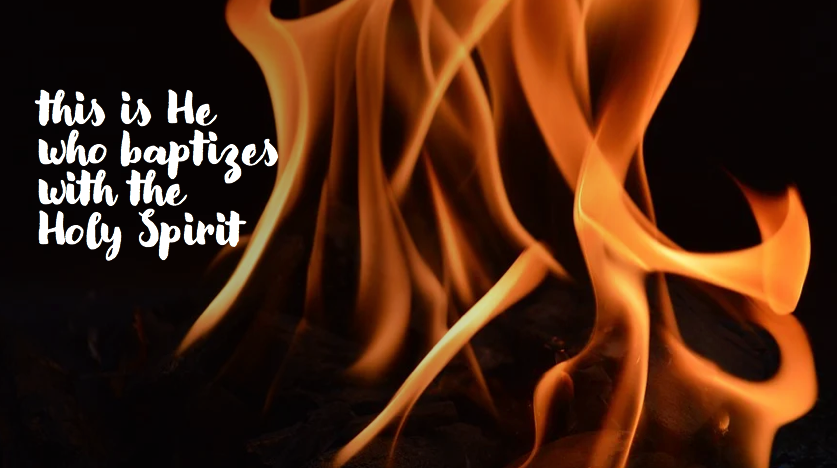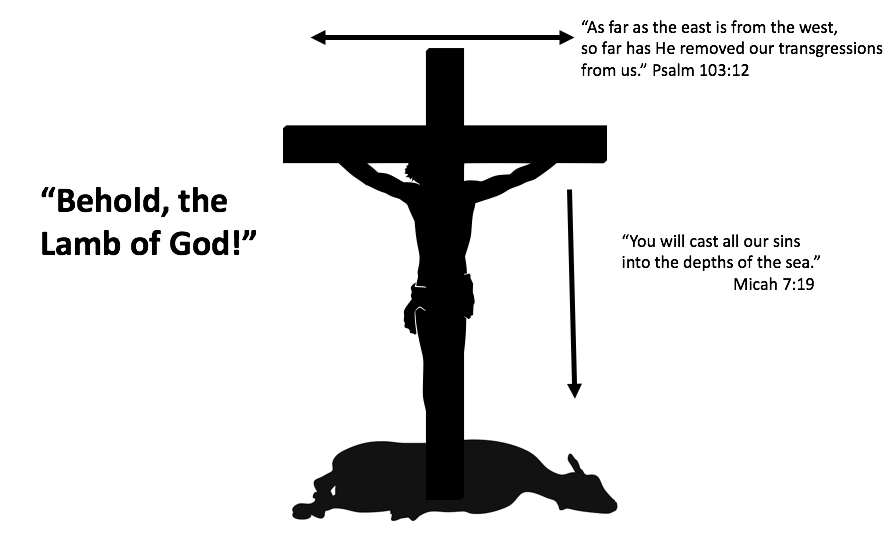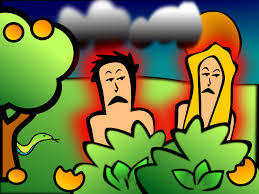“I did not know Him, but He who sent me to baptize with water said to me, ‘Upon whom you see the Spirit descending, and remaining on Him, this is He who baptizes with the Holy Spirit.’” John 1:33
If God is going to greatly use us, we must recognize who we are not (John 1:19-21), who we are (John 1:22-23), and point others to Jesus Christ (John 1:24-29). This is what John the Baptist continues to do.
He pointed others to Jesus by telling them about Jesus’ Pre-existence. “This is He of whom I said, ‘After me comes a Man who is preferred before me, for He was before me.’” (John 1:30). John returns to a statement he made earlier in John 1:15 regarding the pre-existence of the Son of God. He wants his audience to understand that the Lamb of God is more than a man laying down His life for a good cause. The One who died to take away the sin of the world was none other than the eternal Word who has always existed (John 1:1-2). Even though John the Baptist was born six months prior to Jesus (Luke 1:26, 36), John says, “He was before me.” Jesus was always before John in His Pre-existent state as God. Christ is God without beginning or end (I John 5:20; Revelation 1:17; 22:13).
If we are going to be greatly used by God, we need to be able to tell others of Jesus’ Pre-existence as God. We must recognize how great Jesus is! We are not worthy to be mentioned in the same sentence with Him. Because Jesus is eternal, He can give life that never ends to those who believe in Him (John 11:25-26).
The next way John pointed others to Jesus was to tell them of Christ’s deity. The Baptist refers back to that moment at Jesus’ baptism when it was revealed that Jesus was the chosen Messiah. “‘31 I did not know Him; but that He should be revealed to Israel, therefore I came baptizing with water. 32 And John bore witness, saying, ‘I saw the Spirit descending from heaven like a dove, and He remained upon Him. 33 I did not know Him, but He who sent me to baptize with water said to me, ‘Upon whom you see the Spirit descending, and remaining on Him, this is He who baptizes with the Holy Spirit’” (John 1:31-33).
Do you remember what happened at Jesus’ baptism? The Spirit descended in the form of a dove upon Jesus to confirm Him as the Messiah and the Father testified from Heaven, “This is my beloved Son in whom I am well pleased” (Matthew 3:16-17). God approved the ministry of Jesus. Thus, while John baptizes with water, Jesus will baptize with the Holy Spirit. He is the Giver of the Spirit. Jesus came that people might be brought into contact with the Holy Spirit.
Since the fall of man in Genesis 3, people have longed to be free from the struggle with evil. Some of us today wish we could eliminate our struggle with sin, selfishness, and self-centeredness. There have been times when I wished I could have had a surgical operation to remove my tendency to be stubborn, critical, and selfish. When I saw the hurt I caused, I wished somehow to be able to stop doing those kinds of things.
The Bible tells us that it takes God Himself to do that. The work of the Spirit is to do that very thing. What John is saying is, “I deal with the external…that is as far as I can go. But, when I baptized Jesus, I saw the Spirit coming down like a dove and lighting on His shoulder. The One who sent me to baptize had said to me, ‘When you see that happening, that is the One who will not only change men outside, but will change them on the inside, by the baptism of the Holy Spirit.’ When that happened, I knew who He was. My own cousin, Jesus of Nazareth, was the one who would baptize with the Holy Spirit.”
When we believe in Jesus, God the Holy Spirit places us in the body of Christ, the Church (John 7:39; I Corinthians 12:13; Galatians 3:26-27). That is Spirit Baptism. He comes to live inside of us and wash us clean. He gives us the power to overcome sin in our lives as we depend upon Him. Water baptism, however, does not cleanse you spiritually. When we baptize believers, we do it by immersion because Jesus was baptized that way. Why was Jesus baptized? Did He need to be saved? No. He was perfect. He was baptized because it pleased His Father in heaven and provided an example for us to follow. Christ was also baptized with water to begin His public ministry. So every time a believer is baptized with water, it puts a smile on God’s face and it initiates that believer into the discipleship process whereby he or she begins to minister to others (Matthew 28:19-20).
In the Old Testament, the animals sacrificed by the Israelite worshiper had to be “without blemish” (Leviticus 1:3, 10; 3:1, 6; 4:3, 23, 28, 32; 5:15, 18; 6:6; 9:2-3; 14:10; 22:19; 23:12, 18) which was a foreshadowing of the perfect sacrifice of the Lamb of God. In order for the Lamb of God to be a perfect sacrifice, He had to be sinless. The only way this could be possible, was for the Lamb of God to be fully God and fully Man.
Is it any wonder then that John’s public testimony climaxes in his identification of Jesus as the Son of God. “And I have seen and testified that this is the Son of God” (John 1:34). John wants his audience to know that the Lamb of God is more than a man laying down his life for someone. The Lamb of God is God in human flesh. He is fully human and fully God. He is the One who was with God and who was God (John 1:1-2). This is the only way He could be the perfect sacrifice for the sin of the world (John 1:29).
What a testimony this was from John the Baptist! What a witness! What a voice! John points people to Jesus. He recognizes that it is not about him. He understands both who he is not (the Christ) and who he is (a voice). He understands his role: point people to Jesus.
Understand who Jesus is, so that you might believe on Him, and believing you might have life in His name (John 20:31). Recognize who you are not. This takes humility. Also recognize who you are. This takes confidence. You are a voice, a highway builder. Tell others of Jesus. Do not be ashamed. We are to be like bird dogs. As they point to a group of birds, we are to point people to Jesus, who is the eternal and perfect Lamb of God.
A father and his small son strolled down the street in Chicago past the place where a skyscraper was being constructed. Glancing up, they saw men at work on a high story of the building. “Father,” said the little boy, “What are those little boys doing up there?” “Those are not little boys, son. They’re grown men.” “But why do they look so small?” “Because they’re so high,” his father answered. After a pause the boy asked, “Then, Father, when they get to heaven there won’t be anything left of them, will there?” It’s so true, the closer we get to Christ, the less others see of us and the more they see of Him. Point them to Jesus.
Prayer: Lord Jesus, help me not to lose sight of who You are in the midst of this crazy world.My heart was deeply touched by the contrast between John’s baptism with water and Your baptism with the Holy Spirit. You are far more concerned with my heart than you are my appearance. You are in the business of changing lives from the inside out. When the Father said to You at Your baptism, “This is My beloved Son in Whom I am well pleased,” I think this is something every boy longs to hear from his own earthly father, but they often don’t. Jesus, please help me to hear the Father’s voice saying to me, “I love you and I am very proud of you.” That is the cry of my heart, Lord. In fact, I believe it is the cry of many hearts belonging to men. I want to grow closer to You, Jesus, so others will see more of You and less of me. I love You, Lamb of God. Thank You for always having time for me. In Jesus’ name. Amen.



